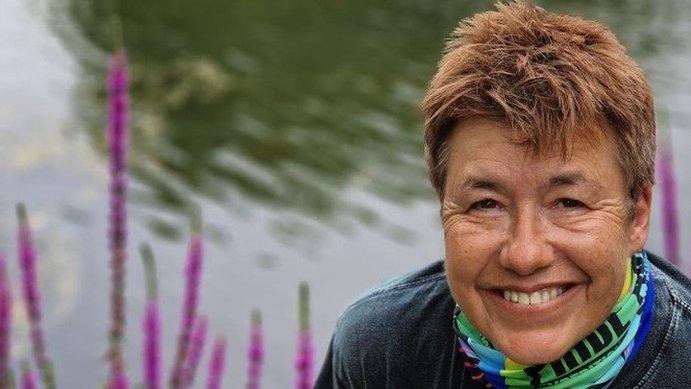LGBT veterans want military ban report immediately
- Published
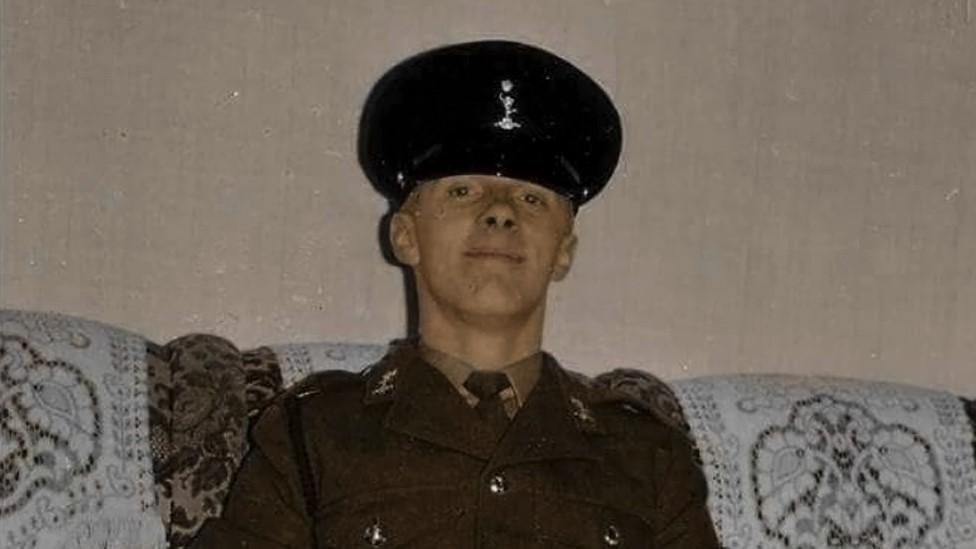
Trevor Skingle joined the army aged 17 and says he hid his sexuality for years
Campaigners are urging the government to immediately release the findings of a review into the treatment of LGBT veterans who were forced out of their jobs as a result of being gay.
Until 2000 it was illegal to be gay in the British military - with more than 5,000 veterans thought to be affected.
Some have given evidence to a review launched last year but are concerned the report has not been published yet.
The government said it would consider the recommendations "in due course".
One veteran told BBC News she wants the government to apologise because gay officers' lives "were robbed" by the ban.
Carol Morgan and other veterans had hoped for an update at an event they were invited to at London's Imperial War Museum on Thursday evening.
Veterans minister Johnny Mercer and the chairman of the independent review, Lord Etherton, gave speeches but no new details were released and no further timeframe was given for the report's publication.
BBC News has been told some people left the room upset and distressed.
Caroline Paige, co-director of military charity Fighting With Pride, told BBC Breakfast: "They're really distressing experiences that they've had to reach back into to provide that evidence so they can move forward, and if the report isn't seen by them, they can't see that step forward."
She said veterans were concerned that progress made with the report would "slow down" without a publication date being set by government.
A government spokesperson said: "We can confirm that Lord Etherton has concluded his independent review and submitted his report to the government. In line with the terms of reference, we will carefully consider the findings and respond in due course."
They added that they were "proud" and "grateful" for LGBT people's service.
Until the ban was lifted in 2000, those who were - or were perceived to be - homosexual faced intrusive investigations and were dismissed or otherwise forced to leave the military. Many still have a criminal record of the conviction.
Some veterans say it meant a complete loss of income which still affects them today. Others were deemed ineligible to claim their pension because of their dismissal.
'They've robbed me of my life'
In 1978, Carol Morgan signed up for 22 years in the army, hoping to become a physical training instructor and dedicate her life to her country.
But after falling in love with another female soldier, she said she was reported to her seniors by a colleague and subjected to a four-day investigation which included searches of her bunk, psychiatric evaluations and intimate questions about her sex life.
During one six-hour interrogation she said she eventually told her bosses she was gay, and was dismissed.
She said: "I had signed up for 22 years of my life, and in just four days it was snatched away from us."
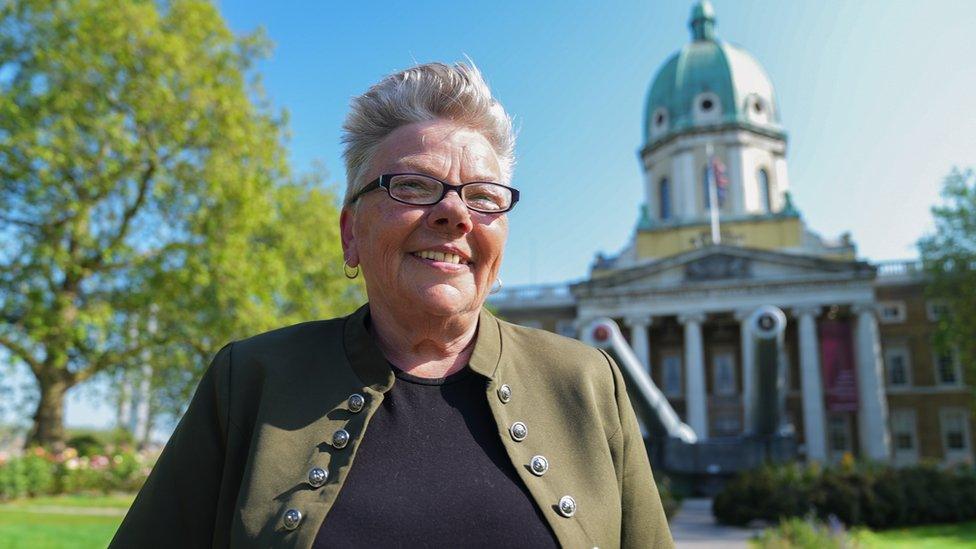
Carol Morgan spent 30 years of her life hiding her sexuality but says she is now a "proud gay woman"
The trauma of her dismissal led Ms Morgan to keep her sexuality secret for another 30 years, coming out as a lesbian at the age of 58.
"I've missed out on relationships, partners, all of that. I think they've robbed me of my life completely."
Like many LGBT veterans who were dismissed, Ms Morgan is not eligible to withdraw the pension she built up during her service and is now left on a low income.
She said she hopes Lord Etherton's recommendations will help change this.
"I live from week to week, so I hope that my pension is reinstated," she explained, adding: "And I hope that we get an official apology and compensation because the careers we could have had and the lives we could have had were robbed."
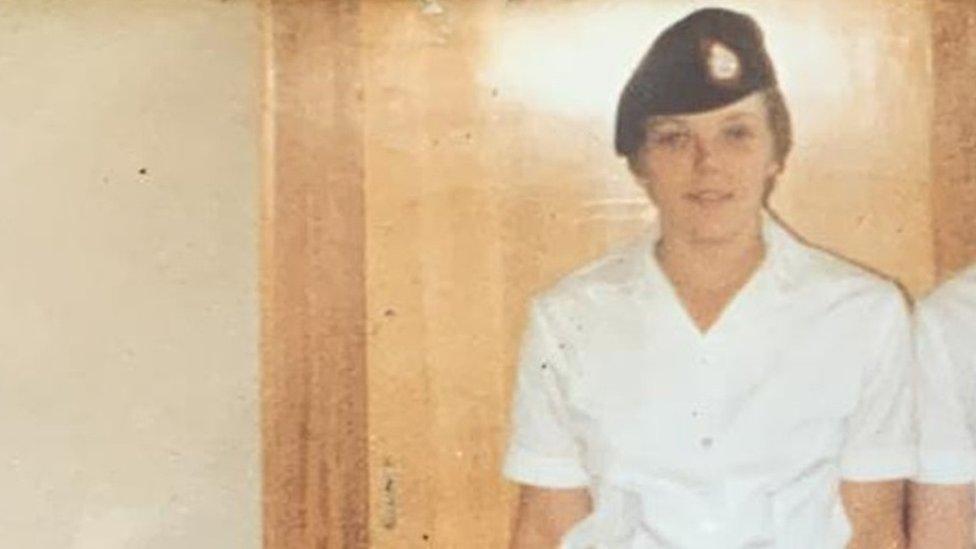
Carol Morgan, pictured before she was dismissed from the military
Trevor Skingle served in the army between 1974 and 1979, following in the footsteps of his grandfather and great-grandfather.
After throwing himself into his basic training, it was on his first posting to Germany that hiding his sexuality started to impact his mental health and he attempted to take his own life.
He said: "I woke up in a military hospital in Hanover, and after two or three days recovery, I was escorted into an office where there was an army psychologist and for the next hour and a half he just went on and on and on about my sexuality, asking me questions about my sex life and what sort of sex I engaged in."
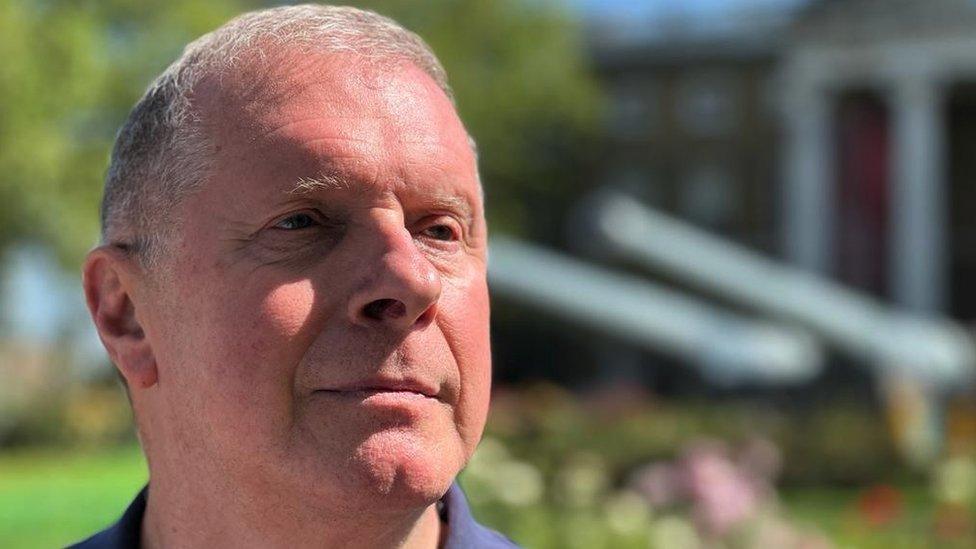
Trevor Skingle hopes the government will restore pensions to those who lost them after being dismissed
Mr Skingle eventually ended the questioning by lying about having a girlfriend but, after so many years hiding who he was, he decided he could no longer face continuing in the military and told the Ministry of Defence about his sexuality. He said he was dismissed immediately.
His dismissal means he is not eligible to receive any of the pension he built up while serving in the forces, something he hopes the review might help to change.
He said: "The sacrifice that you make in the armed services, is you can give your life, you can actually lay your life down to fight on behalf of this democracy that we live in.
"They need to show us those democratic principles are alive today and the government needs to listen [to the review findings] and not nudge it back."
In January 2022, the government commissioned the LGBT Veterans Independent Review, external, so that they could decide how best to make reparations to those impacted by the ban.
More than 1,100 people shared their stories, and the findings and recommendations from the review are now being considered by the government.
Related topics
- Published22 June 2022
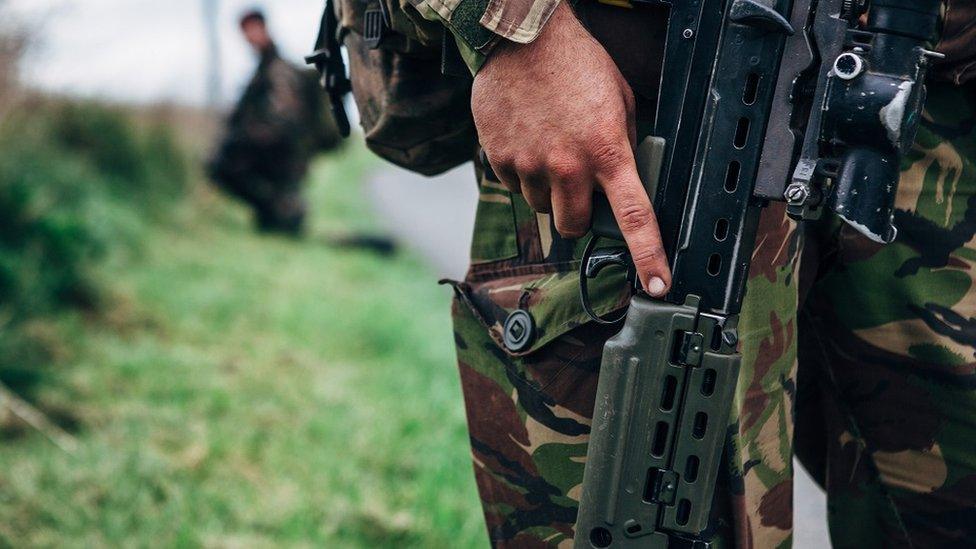
- Published2 November 2022
